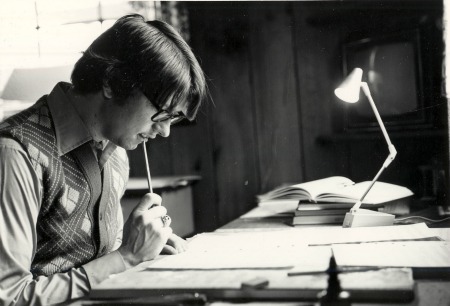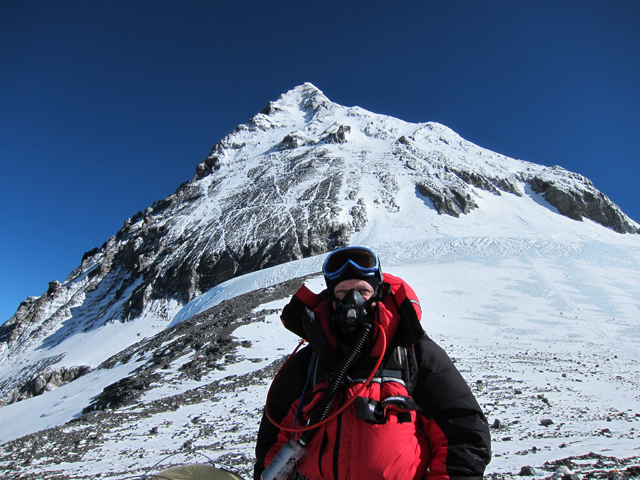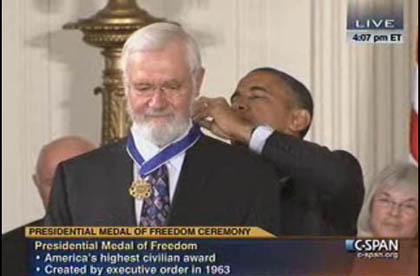Page 121 • (1,373 results in 0.113 seconds)
-
of the well. Collaboration is central and intentional in this project, and critical to its success. The collaborative narrative spanned across borders between the communities of El Limonal and Parkland. Students at nearby Brookdale Elementary learned from PLU students about El Limonal. Prior to departure, the PLU student team visited all classrooms in the school, training Brookdale students about hygiene and water, and in many cases using the same curriculum shared in Nicaragua. Other
-

. “During my junior year, I witnessed people in Tacoma relying on buses to get to work, school, the doctor or just visit their families,” says Austin. “It really hit home that public transit access touches and impacts so many other critical issues.” Transit in Tacoma Andrew Austin discusses why public transportation is so important, not only now, but for our future. “Even now, nearly 10 years later and equipped with a few more tools, I feel like I’m the same young guy, figuring out how I can be an
-

September of 2020, this state-of-the-art Center upgrades and expands the practice space available to PLU nurses. In this space, they will develop the skills required to become nursing leaders in our communities. A state-of-the art simulation lab is critical to any competitive contemporary nursing education program today. Students must have access to the safe clinical practice settings found in a simulation lab that provides guided learning experiences and real time feedback from faculty about their
-
inquiry and leadership,” languages taught at the university also needed to enable students and scholars to engage in an ongoing critical examination of, and dialogue with, the original texts from the past that have shaped and influenced our –and others’– present. Without this, the university only produces what Luther called “unlettered preachers of the faith”: well-intentioned and well-versed purveyors of ideas that they have accepted but have no means to investigate or to transcend. Luther’s insight
-
Conductor (and Tenor) Stephanie Renee Cox Olympic Gold Medalist Abbot Tryphon Abbot of All-Merciful Saviour Monastery on Vashon Island Valerie Segrest Nutrition Educator Vandana Shiva, Ph.D. Author, Activist, Pioneer Freedom Education Project Puget Sound Wang Symposium Panel Shane Lopez Psychologist and Researcher Steinar Bryn, Ph.D. Noble Peace Prize Nominee Robin DiAngelo Critical Race and Social Justice Educator Jesse Freeston Video Journalist Shyan Selah and Paula Boggs Seattle Music Stars Simon
-

. Luther’s voice comes in. A professor teaches in a classroom with a map in the background. A student takes notes.] Dr. Kate Luther, Department Chair of Sociology & Criminal Justice: we are not teaching students about how to investigate a crime scene instead we are teaching students to look at the criminal justice system through a [video: Dr. Luther speaks to the camera in her office.] Dr. Luther: sociological lens which means looking at inequalities in the system thinking about how different communities
-
thinking, modeling and simulation and data visualization using the Python programming language and R statistical software. Intended for students without prior programming experience. Prerequisite: completion of PLU MATH 140 or an equivalent college-level course with a grade of C or better; or PLU mathematics placement into PLU MATH 151 or a higher numbered PLU mathematics course. (4)DATA 233: INTRODUCTION TO DATA SCIENCE IIContinuation of DATA 133, topics may include data manipulation, cleaning and
-

The End of an Era Posted by: Mandi LeCompte / May 21, 2014 May 21, 2014 Dave Robbins Steps Down after 33 Years as Chair of the Department of Music Greg Youtz’s first glimpse of Dave Robbins was him strolling down a hallway in Eastvold, while his two-year-old daughter toddled along at his side, clutching his finger. “I remember thinking that Dave is not only this great dad to his kids, but that was an image the rest of us felt – like we were holding on to Dave’s finger too, and he was sort of
-

it, but it’s very real.” There was one guy in a different group, he met and knew well enough to joke around with. When his group was leaving base camp one day, he saw a mass of guides and medical personnel grouped around a body. “You just knew immediately something bad had happened,” he said. “And I looked over there and there he is dead. It’s very sobering. That was very sad.” But while on the mountain, death wasn’t what he was thinking about. “I took the attitude of most people,” Nelson said
-

work. “I found myself frequently set up for debate about whether this was possible, “ Foege said of his work to eradicate smallpox by wiping out the disease area, by area. “I remember in the 60s thinking this was a terrible waste of time…to be debating whether this can be done when we should be out doing it.” Foege and his colleagues employed his containment techniques in India, leading to the declarations that smallpox was gone..the first contagious disease eliminated by deliberate public health
Do you have any feedback for us? If so, feel free to use our Feedback Form.


